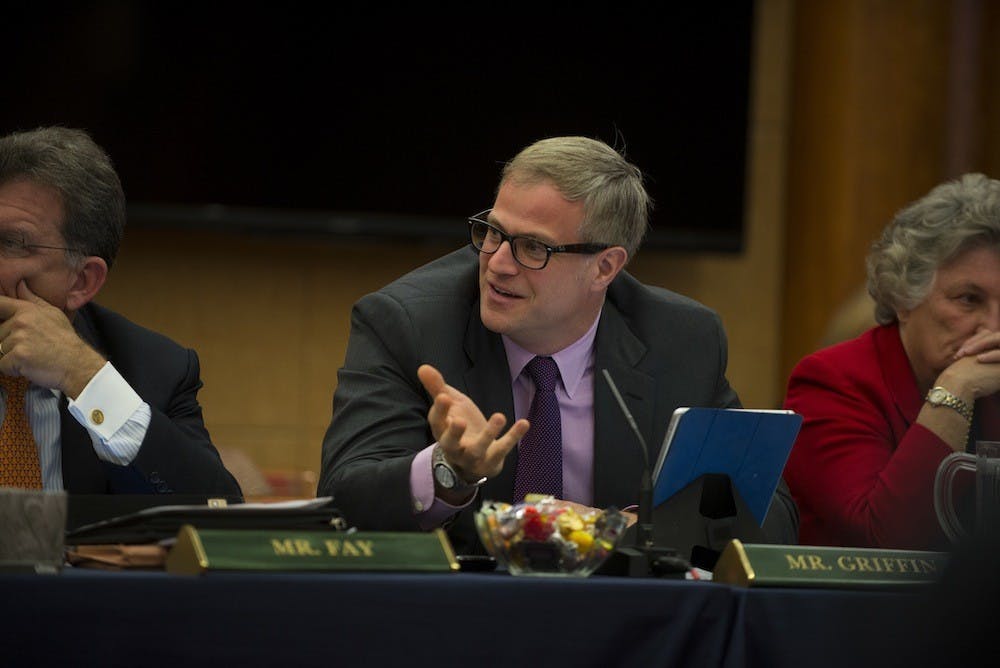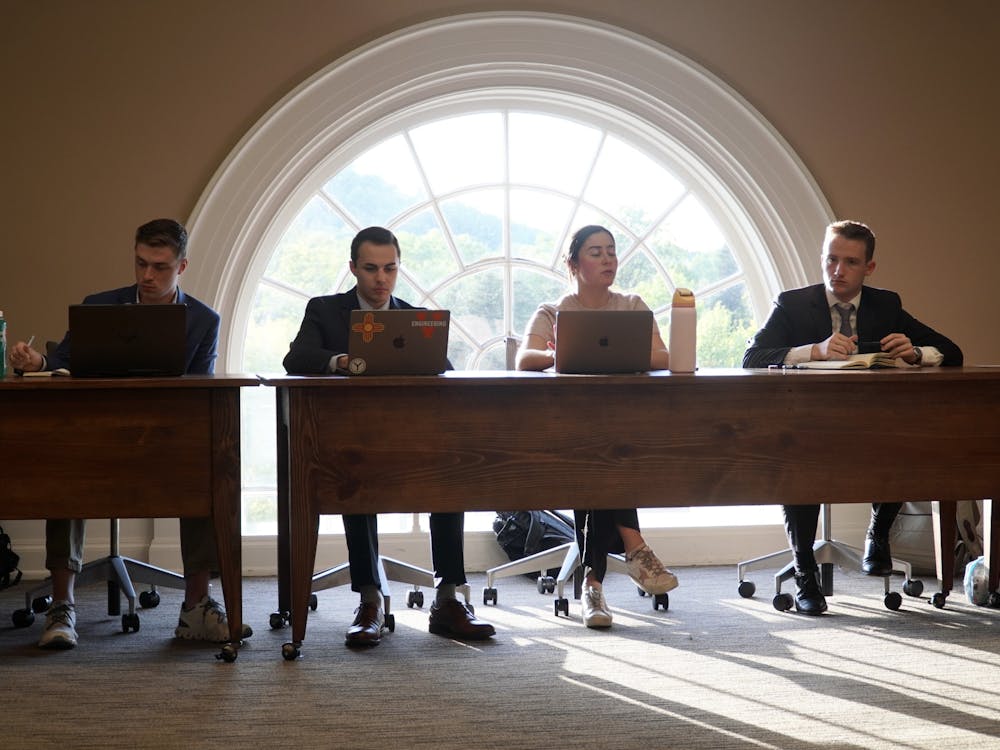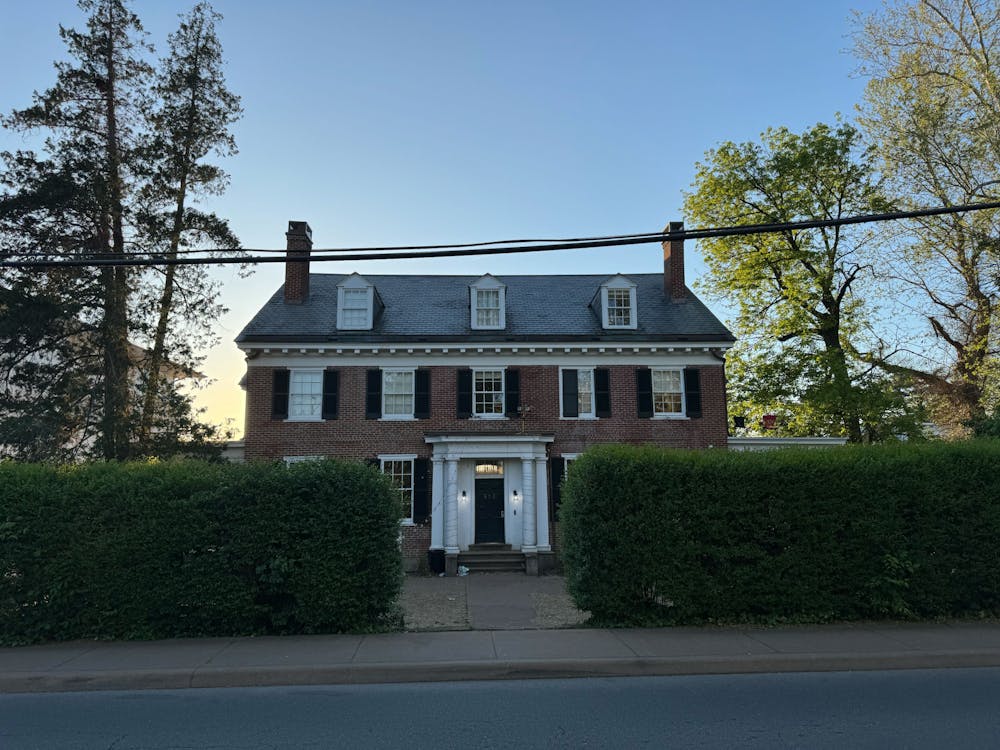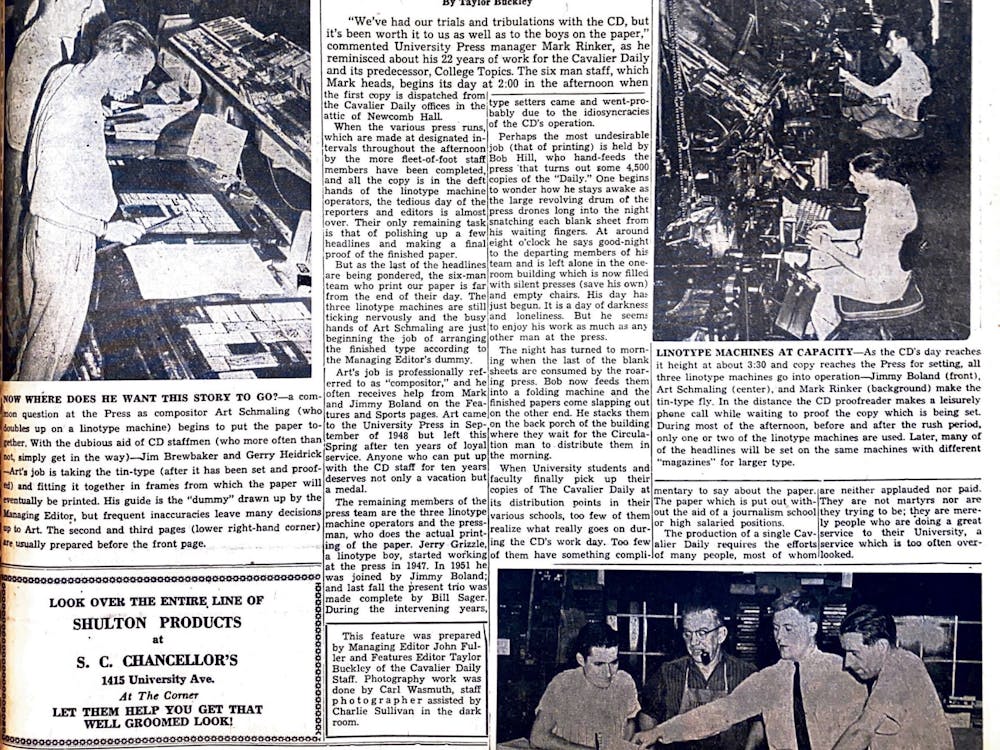The Board of Visitors met in full Saturday morning in Garrett Hall to hear a report from the Financial Subcommittee to plan for long-term academic success, institutional affordability and the state of AccessUVa.
The meeting, officially a session of the newly formed Affordable Excellence subcommittee, featured input from deans of nearly every school and several top University administrators, including University President Teresa Sullivan and Executive Vice Presidents John Simon and Patrick Hogan.
The four-hour meeting began with a discussion of the University's top priorities, and later transitioned into a discussion of institutional costs and finances.
“Our challenges are significant and well known: declining state support, rising need among the students, generational turnover of faculty and a comprehensive set of institutions goals,” Subcommittee Chair John Griffin said.
Griffin said Saturday’s session was intended to present challenges and findings, as well as to solicit feedback from Board members. No votes were cast.
“After today, our subcommittee will use the discussion to take your feedback and finalize recommendations for the right mix of these funding proposals,” Griffin said.
The discussion of the University’s challenges focused on the need to greatly expand faculty hiring, to both replace a wave of retirees and build a stronger reputation in science and engineering fields.
“If we don’t get this one settled, nothing else matters,” Sullivan said. “We rely on the faculty to teach our students, treat our patients and conduct our research. If we don’t have a strong faculty, we don’t have a strong University.”
She said that through the next eight years, the University needs 467 replacement hires in addition to 105 new hires. Because most of the faculty need is in STEM fields, in addition to salary costs, hiring new faculty will include the start-up costs of labs and research. Hogan said the average start-up package in STEM fields is around $1 million but could be as high as $2 million.
“If we don’t have start-up packages, we’re not in the game for science and technology,” Sullivan said. “They need a certain amount of equipment.”
Board member L.D. Britt said he agreed with Sullivan.
“At the end of the day, you cannot sustain an academic institution without a start-up package,” he said. “Why are we even addressing this issue? I could not have done my career without a start-up package. It’s like telling a farmer that he or she cannot use fertilizer.”
Board member Helen Dragas said the question is not whether to offer start-up packages, but how.
“The Board has never said we don’t want start-up packages,” Dragas said. “What the Board’s position has been, has been to find a plan to finance it.”
Board members then discussed funding the increase in faculty hiring and other institutional goals while still maintaining costs affordable for students.
Hogan’s office predicts that new hiring costs, including startup packages, will range from $40 million to $52 million annually in the next eight years, amounting to between 2.8 and 3.5 percent of the current academic division operating budget.
Dean of Admissions Greg Roberts emphasized the impact of any decisions which lead to an increase in tuition prices.
“Instituting a high tuition but not reinvesting in financial aid makes the cost of going to this University very difficult – especially for first-generation students — and doesn’t attract students in Virginia who are from middle and lower class families who essentially can’t afford to go here,” Dean of Admissions Greg Roberts said.
According to the subcommittee’s progress report, the Board will execute a philanthropic campaign, which will fundraise to increase the AccessUVa endowment. The Board’s goal is to raise $200 million by 2019, bringing the total endowment to $360 million.
“From the student perspective, while it is great to have [a] philanthropic campaign and utilize it to provide to students, having a AccessUVa endowment would attract a lot of attention from donors,” said Board student member Meg Gould, a fourth-year College student. “It does seem that we are taking the path that is not necessarily as aggressive as it could be in terms of providing affordability.”
Vice Rector William H. Goodwin said that though low-income students may need assistance with the tuition prices, he said in addition to focusing on low-income students, there are students from higher income brackets whose families are also struggling to pay University tuition prices, or whose parents are making them pay for school on their own.
“We are investing so much into [the students] with finances and time, but really we are limiting them and their choices and opportunities they could have after graduation day with debt,” Board member Allison Cryor DiNardo said.
To carry out various the objectives of the Cornerstone Plan, the University will need to increase spending from the endowment's unrestricted fund to $4.5 million annually.
“One of our objectives is to reach stability, and we know that we can’t continue our current state of performance without some type of correction,” Board member John G. Macfarlane said. “If we increase too much we may have to constrain spending in the future years.”
Sullivan and Hogan agreed that much of the required spending would need to be frontloaded in the next several years.





